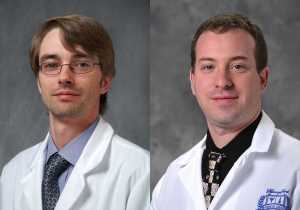Author Interviews, COVID -19 Coronavirus, Heart Disease, JACC, Social Issues / 12.05.2021
COVID-19: Mitigation Measures Correlate With Social Risk Profile
MedicalResearch.com Interview with:
Kobina Hagan MBBS, MPH Postdoctoral Fellow
Center for Outcomes Research,
Houston Methodist Research Institute
MedicalResearch.com: What is the background for this study?
Response: Before the COVID-19 vaccination roll-out, risk mitigation guidelines including respiratory hygiene, social distancing, and job flexibility, were the most effective preventive measures against coronavirus transmission. Social determinants of health scholarships had identified social circumstances to limit adherence to these mitigation guidelines. Individuals with underlying cardiovascular disease are identified as high-risk phenotypes for severe COVID-19 outcomes. In addition, research efforts during the early and middle waves of the pandemic had identified coronavirus exposure risk as a greater mediator of the observed COVID-19 disparities, compared to clinical susceptibility from comorbidities. Yet, population-based evidence on the practice of these mitigation guidelines in this high-risk group were lacking. Consequently, we believed there was a need to robustly characterize COVID-19 risk mitigation practices among adults with cardiovascular disease in the nation.
The COVID-19 Household Impact Survey was a survey conducted by the National Opinion Research Center at the University of Chicago, to provide statistics about health, economic security, and social dynamics of the US adult household population nationwide and for 18 geographic areas (10 states, 8 metropolitan statistical areas) between April and June 2020. This survey complemented the Household Pulse Survey by the Census Bureau.
In this study we described the COVID-19 risk mitigation practices among patients with CVD and evaluated the association between cumulative social determinants of health burden (a measure of social adversity) and adherence these measures. (more…)





















 Benjamin E. Gewurz MD, PhD
Broad Institute of MIT and Harvard, Cambridge,
Division of Infectious Disease, Department of Medicine, Brigham and Women’s Hospital,
Department of Microbiology, Harvard Medical School
Boston, MA
MedicalResearch.com: What is the background for this study?
Response: When the Covid-19 virus infects cells, it takes over and redirects our cells resources towards the projection of virus building blocks and new viruses. Building blocks include large amounts of RNAs that encode for the viral proteins, much as the mRNA vaccines direct our bodies to make the spike protein. We wondered how the virus changes cell metabolism in order to support the synthesis of vast amounts of viral RNAs within hours of infection.
Benjamin E. Gewurz MD, PhD
Broad Institute of MIT and Harvard, Cambridge,
Division of Infectious Disease, Department of Medicine, Brigham and Women’s Hospital,
Department of Microbiology, Harvard Medical School
Boston, MA
MedicalResearch.com: What is the background for this study?
Response: When the Covid-19 virus infects cells, it takes over and redirects our cells resources towards the projection of virus building blocks and new viruses. Building blocks include large amounts of RNAs that encode for the viral proteins, much as the mRNA vaccines direct our bodies to make the spike protein. We wondered how the virus changes cell metabolism in order to support the synthesis of vast amounts of viral RNAs within hours of infection.


